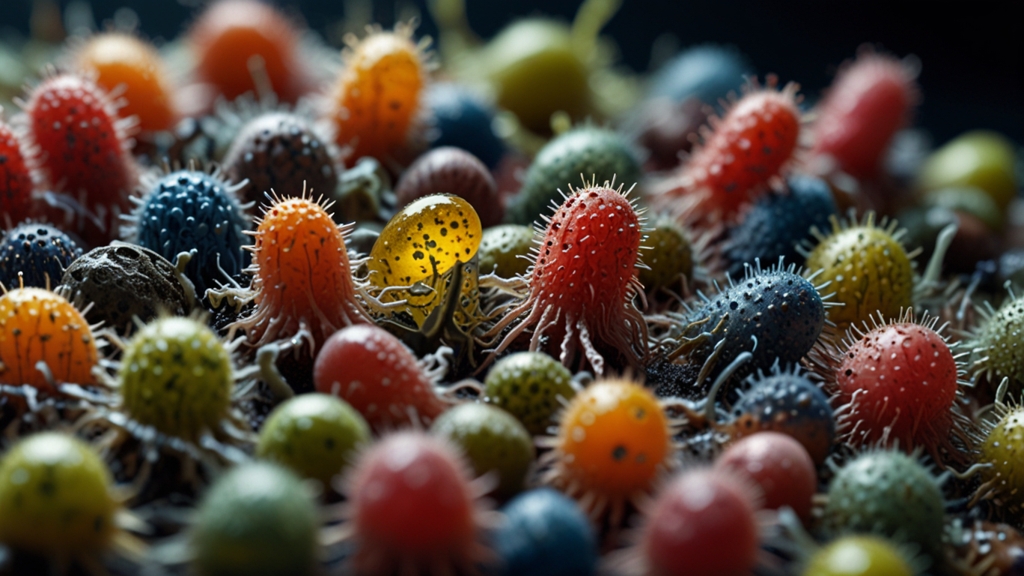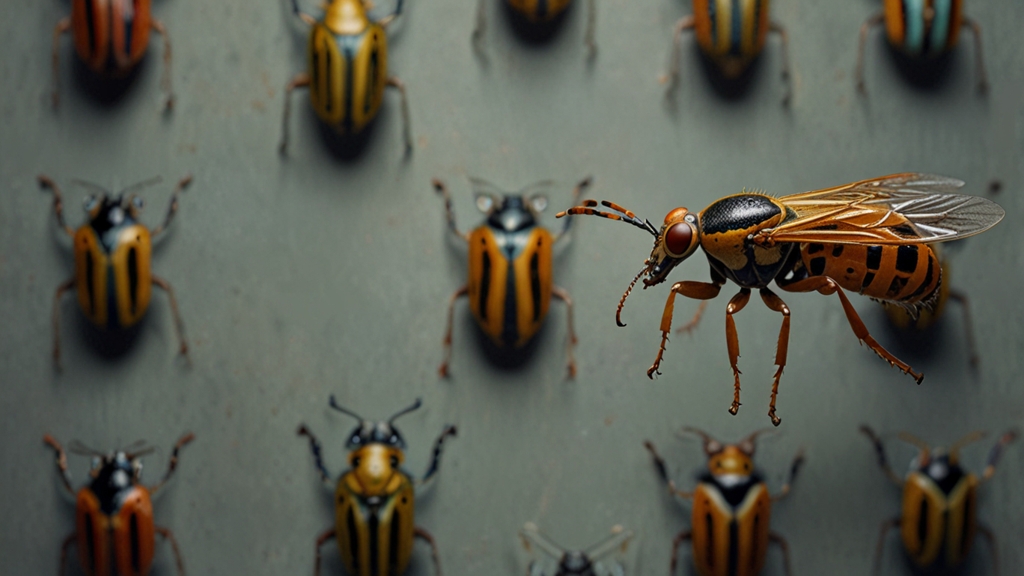The Astonishing World of Microbes: Discover the Tiny Creatures That Rule Our Lives
Microbes are the invisible rulers of our world, profoundly influencing every aspect of life on Earth. These microscopic organisms, which include bacteria, viruses, fungi, and protozoa, are not just mere pathogens responsible for illnesses but are essential players in various biological processes. Although they are often invisible to the naked eye, their impact is monumental, governing everything from the planet's ecological balance to human health and industry.
Unseen Guardians of Our Ecosystem
Microbes play an indispensable role in maintaining the balance of ecosystems. They are the arch recyclers, breaking down organic matter and recycling nutrients that sustain plant and animal life. Soil microbes, for example, decompose dead organic material, releasing nutrients back into the soil, thereby fostering plant growth.
"If all microbes suddenly disappeared, life as we know it would come to a grinding halt. Nutrient cycles would break down, and ecosystems would collapse," notes Dr. Jessica Green, a microbiologist.
In aquatic environments, certain bacteria and algae perform photosynthesis, contributing significantly to the production of oxygen. These microscopic organisms are the unsung heroes of our planet's health, driving the fundamental processes that sustain life.
Microbes and Human Health
Our relationship with microbes is deeply symbiotic. The human body hosts trillions of microbes, collectively known as the microbiome, which live predominantly in our digestive system. These microscopic inhabitants play a crucial role in our health by aiding in digestion, producing vitamins, and protecting against pathogens.
Recent research has also revealed the profound impact of the microbiome on our immune system and even on mental health. Imbalances in the microbial community, known as dysbiosis, have been linked to a variety of conditions, including inflammatory bowel disease, allergies, and even depression and anxiety.
"The human microbiome is often likened to an unseen organ, as it is vital for our overall health and well-being," says Dr. Emily Balskus, a chemist and microbiologist.
Industrial and Biotechnological Marvels
Beyond their natural roles, microbes are invaluable to various industries. In agriculture, they are used as bio-fertilizers and pest control agents, helping to reduce reliance on chemical alternatives. In the food industry, microbes are essential for the production of bread, cheese, yogurt, and alcoholic beverages through processes like fermentation.
The pharmaceutical industry also owes much to microbes. Antibiotics, one of the most significant medical advancements, are derived from microbial metabolites. Additionally, genetic engineering and biotechnology leverage microbes to produce insulin, hormones, and other therapeutics, illustrating their indispensable role in modern medicine.
Environmental Superheroes
Microbes are at the forefront of efforts to address some of the planet's most pressing environmental challenges. Bioremediation techniques use microorganisms to clean up oil spills, detoxify contaminated sites, and treat wastewater, showcasing their potential to solve complex environmental problems.
Genetically modified microbes are being developed to tackle plastic pollution by breaking down synthetic polymers that are otherwise resistant to decomposition. These innovations underline the versatility and adaptability of microbial life, offering new solutions for sustainable living.
The Future of Microbial Research
As our understanding of microbes deepens, the possibilities for harnessing their potential seem boundless. The study of extremophiles, microbes that thrive in extreme conditions, has broadened our horizon, suggesting potential applications in space exploration and the development of novel materials and enzymes.
Advancements in genome sequencing and molecular biology continue to unlock the mysteries of microbial life, promising new breakthroughs in medicine, ecology, and industry. The astonishing world of microbes is indeed a frontier of endless discovery, teeming with opportunities to improve our world in myriad ways.
"We are only just beginning to scratch the surface of what these tiny creatures can teach us," says Dr. Martin Blaser, a prominent researcher in the field. "The future of microbial research is incredibly exciting and holds the promise of transformative innovations."
In conclusion, microbes are the unheralded architects of life, shaping our existence in countless, often unnoticed ways. From sustaining ecosystems to protecting our health and driving biotechnological advancements, these minute organisms are the linchpins of our world. As we continue to explore their fascinating universe, we are reminded of the profound interconnectedness of all life on Earth, governed by the astonishing power of microbes.








